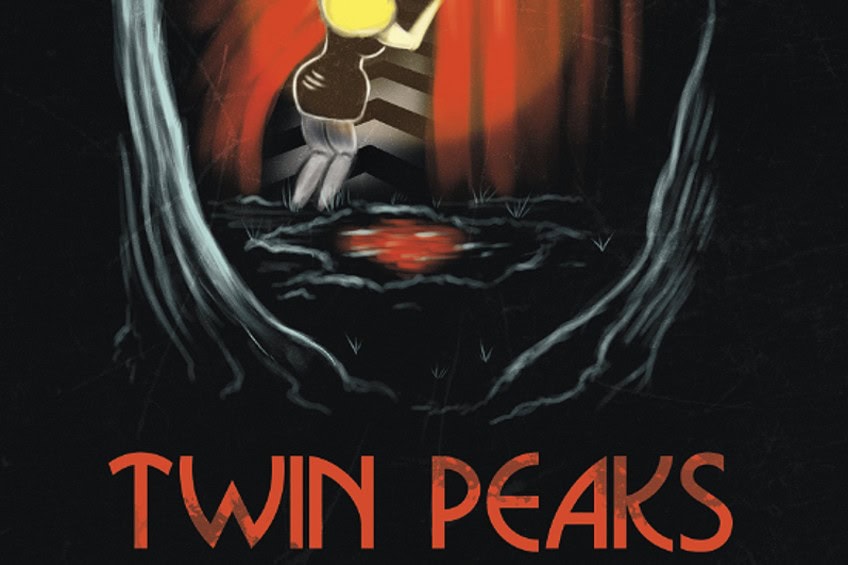David Lynch – Blurring Reality and Fantasy on Film
David Lynch, renowned for his enigmatic storytelling and distinctive visual style, stands as a singular figure in contemporary cinema. Emerging from the avant-garde art scene of the 1970s, Lynch has consistently challenged narrative conventions and audience expectations with his surreal and often unsettling cinematic visions. From his early works like Eraserhead to iconic masterpieces such as Blue Velvet and the groundbreaking TV series Twin Peaks, Lynch’s oeuvre is characterized by its exploration of the subconscious, blending elements of film noir, horror, and psychological thriller with a profound and deeply personal symbolism. His films not only captivate with their atmospheric intensity but also provoke introspection on themes of identity, desire, and the darker aspects of human nature. Lynch’s enduring influence extends beyond cinema, resonating deeply within the realms of art, music, and popular culture, solidifying his status as a true visionary in modern filmmaking.
Key Takeaways
- David Lynch is known for his unique cinematic style referred to as “Lynchian.”
- He achieved critical acclaim with films and the TV series, Twin Peaks.
- Lynch is also a painter and musician, showcasing his broad artistic talents.
Early Life and Education
| Birth | January 20, 1946 |
|---|---|
| Death | Present |
| Place of Birth | Missoula, Montana, United States |
| Genre of Work | Filmmaker, painter, visual artist, musician, author, and actor |
David Lynch, born on January 20, 1946, is an iconic figure in the world of American filmmaking, celebrated for his surrealist, dreamlike style that captivates audiences. Lynch’s work is often characterized by its unique blend of eerie atmospheres, compelling narratives, and meticulous sound design, establishing a cinematic style often referred to as “Lynchian.”
His journey into the world of filmmaking began after initially studying painting, which heavily influenced his visual and artistic approach to cinema.
His cinematic achievements garnered critical acclaim with films like Eraserhead, Blue Velvet, Mulholland Drive, and the cult classic TV series Twin Peaks. Lynch’s ability to weave complex, multi-layered stories has made a significant impact on both cinema and television, offering viewers an experience that is both intellectually stimulating and emotionally immersive.

In addition to his filmmaking, Lynch is also a talented musician and painter, which further illustrates his vast creative talents and influence in the artistic world. His diverse body of work continues to inspire and challenge audiences, cementing his legacy as a visionary artist.
Formative Years
David Keith Lynch was born on January 20, 1946, in Missoula, Montana. His father, a research scientist with the U.S. Forest Service, frequently moved the family to different states, including Idaho, Washington, and North Carolina. These relocations exposed Lynch to various American landscapes and cultures, which became a significant influence in his later work.
Lynch’s childhood was marked by a fascination with the unexpected and the ordinary.
He spent much of his time exploring the outdoors and engaging in creative activities. Lynch’s experiences during these years instilled in him a deep appreciation for the juxtaposition of the mundane and the bizarre, a theme that would pervade his films.
Artistic Beginnings
David Lynch attended high school in Alexandria, Virginia, where his interest in art began to flourish. He later enrolled at the School of the Museum of Fine Arts in Boston, but found the environment stifling and quickly left. Lynch then moved to Philadelphia to attend the Pennsylvania Academy of the Fine Arts (PAFA).

In Philadelphia, Lynch’s artistic style began to take shape. He created his first short experimental film, Six Men Getting Sick, which won the Academy’s annual student film competition. The gritty, urban environment of Philadelphia also influenced Lynch’s work, providing him with a stark contrast to his earlier experiences in rural settings. This period marked the beginning of Lynch’s unique cinematic voice, blending surrealism with a keen observation of everyday life.
Cinematic Achievements
David Lynch has significantly influenced the film industry through his surreal, often disturbing cinematic style. His works have garnered critical acclaim and a dedicated cult following.
Major Films
David Lynch’s filmography includes several major works that have left an indelible mark on cinema. Eraserhead (1977), his first feature film, is a surrealist masterpiece that set the tone for his career. The Elephant Man (1980) showcased his ability to blend surrealism with poignant storytelling, earning eight Academy Award nominations. Blue Velvet (1986) further cemented his reputation, blending neo-noir elements with dark, psychological themes. Mulholland Drive (2001) is another critical success, praised for its intricate narrative and dreamlike quality.
Despite mixed reviews, Dune (1984) has also garnered a cult following over the years.
Critical Acclaim and Awards
Lynch’s work has received extensive critical acclaim, especially at prestigious film festivals. The Elephant Man won the BAFTA Award for Best Film and earned Lynch an Oscar nomination for Best Director. Blue Velvet brought him another Oscar nomination and won the Independent Spirit Award for Best Director.

Mulholland Drive won Lynch the Best Director award at the Cannes Film Festival and an Academy Award nomination. His career is marked by a blend of critical acclaim and persistent acclaim from devoted fans, solidifying his status as a masterful filmmaker.
Distinct Filmmaking Style
David Lynch’s unique filmmaking style is often described as “Lynchian,” characterized by its surreal, dreamlike qualities and dark, ominous undertones. He frequently explores the hidden darkness beneath seemingly innocent surfaces.
His films often include nonlinear narratives, strange dialogues, and unforgettable visual imagery.
Lynch integrates elements from various art forms, including painting and music, creating a cinematic experience that is both disturbing and captivating. This distinctive style has influenced many contemporary filmmakers and made Lynch a pivotal figure in modern cinema.
Television and Transmedia Work
David Lynch’s contributions to television and transmedia have been both groundbreaking and influential. His work in Twin Peaks redefined TV storytelling, while his experimentation across multiple mediums showcased his unique artistic vision.
The Phenomenon of Twin Peaks
Twin Peaks is arguably Lynch’s most iconic contribution to television. Premiering in 1990, this series revolutionized TV narratives with its blend of mystery, surrealism, and character depth. The show explored the enigmatic murder of Laura Palmer, capturing audiences with its eerie atmosphere and complex plot. Lynch’s direction brought a distinctive cinematic quality to TV, influencing later serial dramas.

The 1992 prequel film, Twin Peaks: Fire Walk with Me, further expanded the universe with a darker, more intense narrative. Twin Peaks: The Return (2017) revived the series, weaving intricate subplots and innovative storytelling techniques. Lynch’s control over these projects demonstrated his ability to transform the conventions of television and engage a dedicated fanbase.
Experimentation Across Mediums
Lynch’s curiosity didn’t stop with television. His transmedia work spans various forms including multimedia, animation, and documentaries. The show, On the Air (1992), showcased his comedic side and further illustrated his willingness to explore different genres. Despite its short run, it added another layer to his diverse portfolio.
His projects often blur the boundaries between traditional and new media. Lynch’s use of the internet for projects like the animated series DumbLand and his web series Rabbits illustrated his innovative approach.
These ventures extended his artistic reach beyond conventional film and TV, embracing new platforms and audiences. In documentaries, his directorial style continued to challenge and inspire, cementing his status as a visionary in modern media.
Artistic Endeavors and Personal Influence
David Lynch is a multifaceted creator whose work spans visual art, music, and spiritual practice, making significant contributions to each field. His creative expressions often reflect elements of Surrealism and dreamlike images.
Collaborations in Music
Lynch’s collaboration with composer Angelo Badalamenti has deeply influenced his film and television projects. Their work together, most notably on Twin Peaks, created a distinctive soundscape that blends ambient and surreal tones. Lynch’s own involvement in music extends beyond soundtrack contributions; he has released several solo albums showcasing his unique sound, characterized by atmospheric and experimental tones.

His music often mirrors the same depth and complexity found in his paintings and films, contributing to a cohesive artistic vision. Lynch’s passion for both visual and auditory experiences highlights his commitment to multisensory storytelling.
Spiritual Practice and Creativity
Transcendental meditation plays a crucial role in Lynch’s creative process. Practicing since 1973, he credits it with unlocking an abundant flow of ideas and enhancing his ability to develop surreal and dreamlike images. Lynch even founded the David Lynch Foundation, which promotes transcendental meditation for stress relief and creative empowerment.
This spiritual practice aligns with his interest in exploring the subconscious mind, a recurring theme in his artwork. By integrating transcendental meditation into his daily routine, Lynch maintains a clear and focused mind, enabling his continued innovation in visual art, painting, and music. This practice underscores the fluid connection between his inner life and his diverse artistic output.
David Lynch’s impact on filmmaking transcends mere storytelling; it embodies a profound exploration of the human psyche and the complexities of existence. His ability to weave intricate narratives with surreal imagery has redefined cinematic language, inspiring generations of filmmakers and artists alike. Lynch’s unwavering commitment to his distinctive vision has not only carved a niche in the annals of cinema but also continues to provoke thought and debate, inviting viewers into realms where reality and dreams blur seamlessly. As a true auteur, Lynch remains an enduring enigma, leaving an indelible mark on the cultural landscape and ensuring his legacy as one of the most influential filmmakers of our time.
Frequently Asked Questions
What Are the Most Acclaimed Films Directed by David Lynch?
David Lynch has directed several critically acclaimed films. Blue Velvet (1986) is known for its dark and surreal narrative. Mulholland Drive (2001) is another celebrated film, often cited for its complex story and dreamlike atmosphere. Eraserhead (1977), his feature debut, remains a cult classic.
What Are the Latest Projects or Films Released by David Lynch?
David Lynch’s recent work includes the return of the iconic television series, Twin Peaks, in 2017. The series, known as Twin Peaks: The Return, was well-received and added to his legacy. There have been discussions about new projects, but no specific details have been confirmed as of now.
How Has David Lynch Contributed to Television?
Lynch made a significant impact on television with Twin Peaks (1990 – 1991). The show’s blend of mystery, supernatural elements, and quirky characters set a new standard for TV dramas. His return to the series in 2017 solidified his reputation as a master of unconventional storytelling in the medium.
What Unique Styles and Themes Are Evident in David Lynch’s Directorial Works?
Lynch’s films often feature surreal and dreamlike sequences, blending reality with the bizarre. Themes of identity, the subconscious, and human nature are prevalent. His use of unsettling sound design, nonlinear narratives, and visual symbolism sets his work apart. These elements create a distinct, immersive experience for viewers.
Isabella studied at the University of Cape Town in South Africa and graduated with a Bachelor of Arts majoring in English Literature & Language and Psychology. Throughout her undergraduate years, she took Art History as an additional subject and absolutely loved it. Building on from her art history knowledge that began in high school, art has always been a particular area of fascination for her. From learning about artworks previously unknown to her, or sharpening her existing understanding of specific works, the ability to continue learning within this interesting sphere excites her greatly.
Her focal points of interest in art history encompass profiling specific artists and art movements, as it is these areas where she is able to really dig deep into the rich narrative of the art world. Additionally, she particularly enjoys exploring the different artistic styles of the 20th century, as well as the important impact that female artists have had on the development of art history.
Learn more about Isabella Meyer and the Art in Context Team.
Cite this Article
Isabella, Meyer, “David Lynch – Blurring Reality and Fantasy on Film.” Art in Context. September 21, 2024. URL: https://artincontext.org/david-lynch/
Meyer, I. (2024, 21 September). David Lynch – Blurring Reality and Fantasy on Film. Art in Context. https://artincontext.org/david-lynch/
Meyer, Isabella. “David Lynch – Blurring Reality and Fantasy on Film.” Art in Context, September 21, 2024. https://artincontext.org/david-lynch/.











